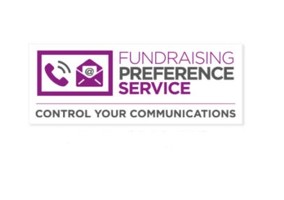The public is often left either confused by or hostile to the language charities use to respond to critical press coverage, an audience of finance professionals heard this week.
Aidan Warner, external relations manager at NCVO, told an audience of finance professionals at Barclays’ National Charity Day in London that charities faced a decline in trust, and in many cases had not used the correct language to defend themselves when facing questions in the press.
He said that unless charities could address a fall in trust, they risked losing the ability to deliver their objectives.
“You could certainly make the case that without trust, we will be in terminal decline,” he said. “You could take the view that as long as enough people keep giving, it doesn’t matter if other people, even a majority, don’t trust us, we’ll be able to survive.
“But that’s a gamble, and I’d say that even if it is financially feasible to survive on diminished trust, charity leaders have a moral obligation to try to arrest and reverse the decline.
“We owe it to the people and causes we work for to secure our sector’s future and preserve our authority.”
No media vendetta against charities
He said that there was not a media vendetta against charities, but there were “factors which have got charities firmly on the media’s radar”. Warner also said that newspapers had found stories about charities with “real meat” and that they were “tapping into what the public already worry about with charities”.
“If you look at the focus groups that NCVO has done, it’s abundantly clear that media stories about charities, again fundraising in particular, weren’t creating these ideas in the public’s mind, they were confirming them,” he said. “The reason Radio 4’s You and Yours, for example, keep returning to the topic of fundraising, is because they know listeners care.”
“One of the key things we found was that the public are confused by, turned off by or hostile to some of the language that charities tend to reach for when they’re answering questions about things like finances or governance,” he said.
“I know I’ve read quite a few defensive press statements from charities that come across, to be frank, as overly corporate, unfeeling or stand-offish. Certainly not in keeping with the tone of voice we use in other areas."
Charity leaders should plan more in advance for crisis PR
He also said it was important for senior leaders in charities to develop a crisis communications plan.
“I’d strongly encourage you to take some time with your communications team to think about what the areas of reputational risk are in your organisation and how you would respond to questions about them.
“I think it would be fair to say that some of the less deft handling we’ve seen by charities of PR crises recently has come at times when a chief executive has been away.
“The more thinking and planning you do in advance, the more quickly and effectively you can respond when you are confronted with an issue.
“Anyone who’s spent any significant time in a press office will tell you that the very worst questions come at 4pm on a Friday afternoon. It’s worth thinking about how you would respond to questions on any number of topics at any time of the day.”
He said that charities needed to believe that trust issues were real, needed to spend more time thinking about reputation, and needed to “resist the temptation to reach for comfortable, familiar legalese and jargon” when criticised.
“Think about how you would explain something to a stranger in the pub,” he said. “Get lawyers involved where need be but please, please don’t let them write any media statements.”
Related Articles












